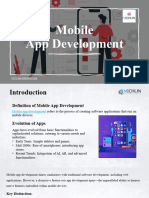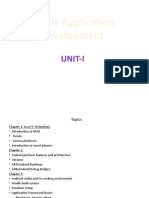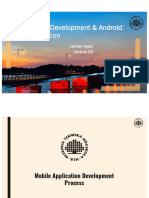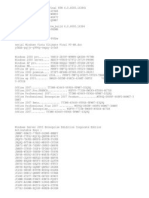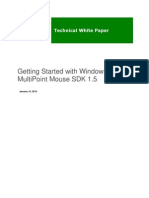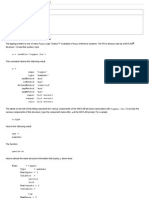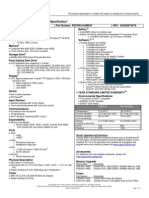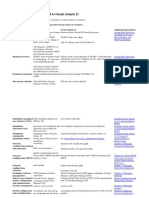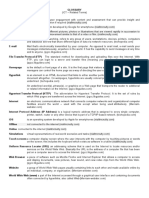0% found this document useful (0 votes)
31 views20 pagesLecture 1
The document provides an overview of mobile operating systems, focusing on Android and its development process. It outlines the mobile app development stages, including strategy, analysis, design, development, testing, and deployment. Additionally, it highlights the market potential for mobile apps and the advantages of developing for the Android platform.
Uploaded by
Avantika JeewaniCopyright
© © All Rights Reserved
We take content rights seriously. If you suspect this is your content, claim it here.
Available Formats
Download as PPTX, PDF, TXT or read online on Scribd
0% found this document useful (0 votes)
31 views20 pagesLecture 1
The document provides an overview of mobile operating systems, focusing on Android and its development process. It outlines the mobile app development stages, including strategy, analysis, design, development, testing, and deployment. Additionally, it highlights the market potential for mobile apps and the advantages of developing for the Android platform.
Uploaded by
Avantika JeewaniCopyright
© © All Rights Reserved
We take content rights seriously. If you suspect this is your content, claim it here.
Available Formats
Download as PPTX, PDF, TXT or read online on Scribd
/ 20

































